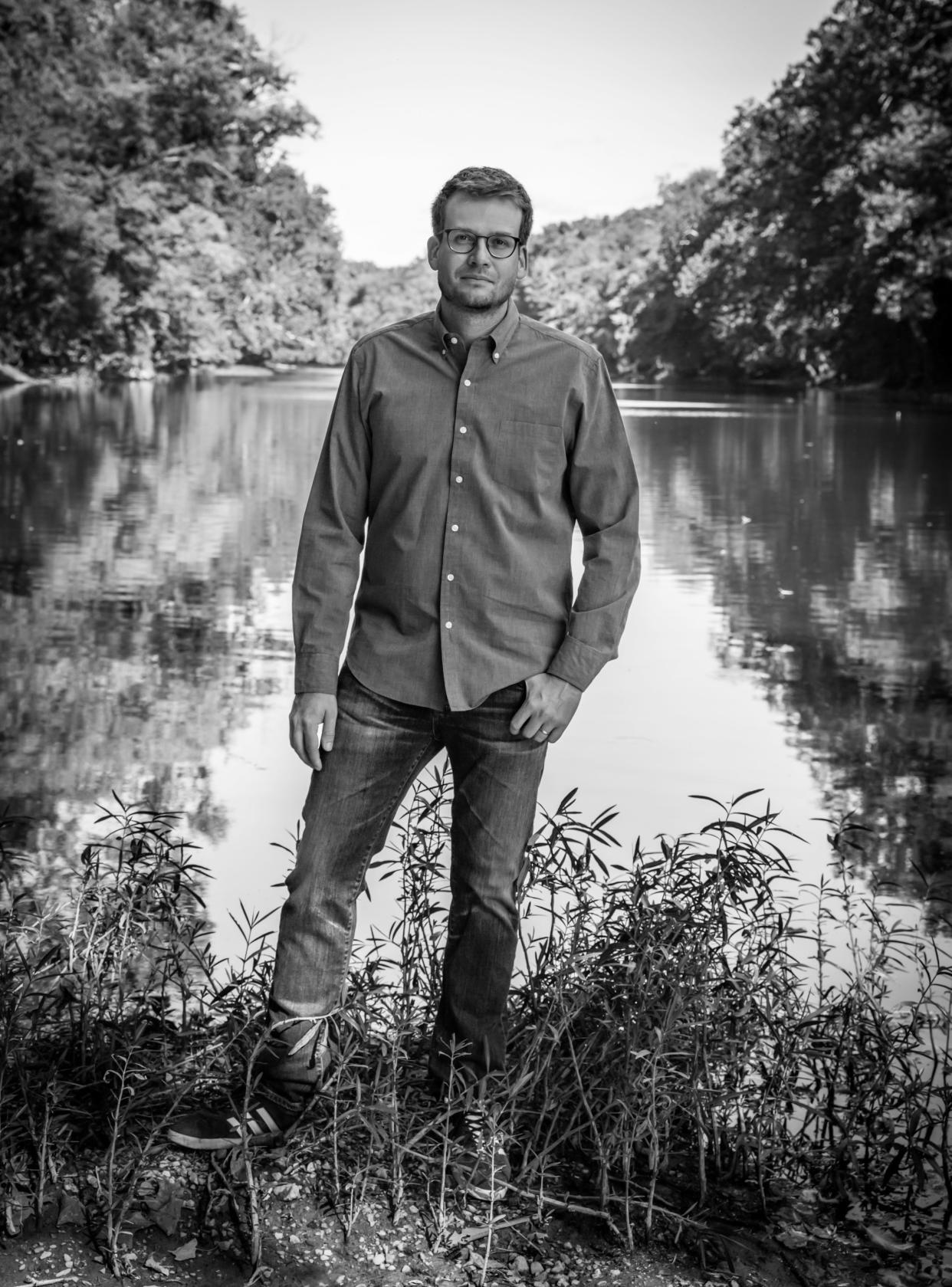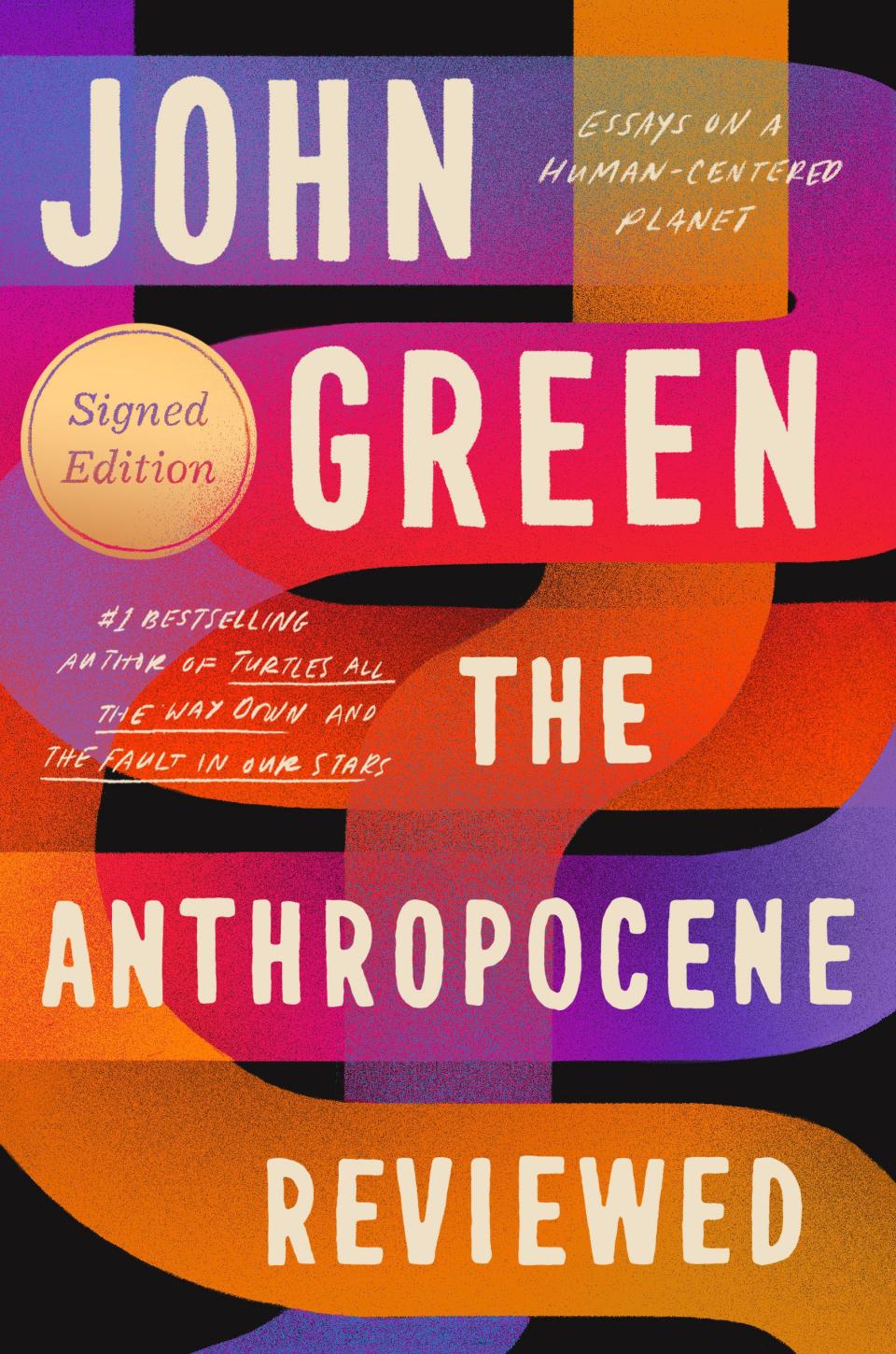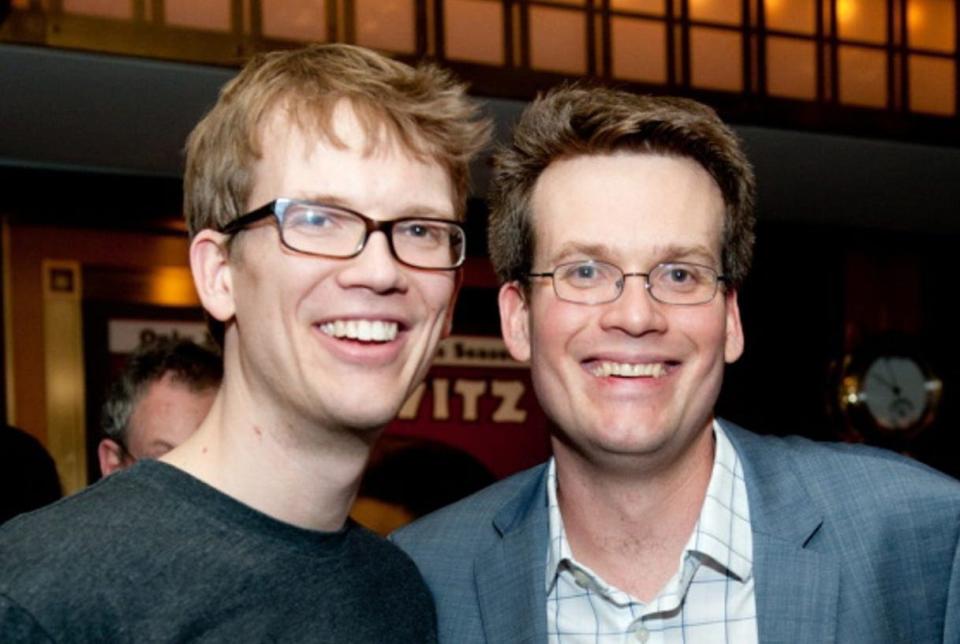‘Looking for the wonder’: John Green rates the internet, CNN and eating contests in first nonfiction book

- Oops!Something went wrong.Please try again later.
- Oops!Something went wrong.Please try again later.
Bestselling author John Green argues in his new book of essays that our modern concept of a five-star rating veers into the absurd: It's meant to be an objective way for us in the digital age to compute something’s worth, but that's impossible to do when every opinion we develop is an amalgamation of our own experiences.
"When I wrote the first couple of essays, I wrote them as if I were a neutral observer of these phenomena," Green, 43, tells USA TODAY. But his wife, art curator Sarah Urist Green, mused that as a Diet Dr Pepper fanatic, he couldn't rate the soda from a completely neutral point of view.
"What she pointed out to me, and I think it was really essential to the book, was that in the Anthropocene, there are no neutral human observers. There are only participants. And so I had to acknowledge my perspective and my place in these stories because otherwise, it would be dishonest."

Thus "The Anthropocene Reviewed: Essays on a Human-Centered Planet" (out May 18) became a collection of Green's ideas about mundane or random topics and how, based on his own life experiences, they represent greater ideas about humanity. He rates each topic on a starred scale where one represents his opinion of the worst and five is the best.
The latest work from Green, known for young adult hits including "The Fault in Our Stars" and "Looking for Alaska," is a reflection on the history and legacy of humans, written during a time in which humans have felt polarized and alone. He began writing the bulk of it about three years ago and finalized work in March, though each essay was "changed" by the pandemic, he said.
"I wanted to write about the places where my little life runs into these big forces in contemporary human experience," Green says. "And then, you know, a year and a half into writing these essays, a bigger force than I have ever encountered showed up."
Essay topics range from CNN (which Green gave two out of five stars) to the Lascaux cave paintings (four and a half stars) to Nathan's Famous Hot Dog Eating Contest (two stars). Green says he wanted to write about subjects that ranged the spectrum from high- to low-brow. In one essay, he makes a compelling case for the importance of the 2014 animated kids' movie "Penguins of Madagascar" (four and a half stars).
"One of the nice things I think about the last 15 or 20 years is that I've seen... people acknowledge the genius and importance of genres that were traditionally considered sort of popular culture rather than high literary culture," Green says. "Just because it's super silly, doesn't mean that it's not good. … For me, that's one of the pleasures of caring about art: Looking for the wonder where I can find it."
"Looking for the wonder" is a theme throughout: Green takes great care to highlight the kindness and joy of humanity, even after a year that doesn't feel like there's much left.
"We all know how loving ends. But I want to fall in love with the world anyway, to let it crack me open," he writes. "I want to feel what there is to feel while I am here."
It's Green's first autobiographical book, though he's been working on an autobiography of sorts for the past 14 years. He and his brother Hank Green – author of the "Absolutely Remarkable Thing" duology – have been posting video blogs on their YouTube channel "vlogbrothers," which has amassed a community of more than 3.37 million followers that refer to themselves as "Nerdfighters," and champion causes that help others and treat them kindly. Their annual Project for Awesome fundraiser this year amassed more than $2.3 million for 25 charities including Save the Children and Partners in health.
How can we replicate that kindness across the rest of the internet?
"I only know how our community has done it and I actually don't think that Hank and I have that much to do with it," Green says, crediting the viewers who preach accountability and empathy.
"I think if you make stuff to get the most possible clicks, that is inevitably, at least so far on the internet, going to mean that you're making stuff that engages with outrage and anger," Green says. "It's something that we talk a lot about and I think one of the reasons if we have a more positive corner of the internet is that we're very lucky to be in a position where we don't have to try to maximize views."
In the new book, in an essay aptly titled "The Internet," (three stars) he details his earliest experiences of the '90s internet, which involved both finding people who make you feel less alone and happening upon potentially dangerous misinformation (it's nice to know some things never change).

Another essay both timely and timeless: "Plague" (one star). When headlines began warning of the possibility of a deadly virus reaching America last spring, Green found himself unable to stop reading about the history of how humans have dealt with infectious disease, which has often left marginalized people most vulnerable.
"There is certainly a lot to be concerned about and there is certainly a lot that we see being repeated, from the unjust distribution of disease burden to people's responses, people's refusal to engage in public health measures. All of that has precedence, but there are also many precedents for people caring for each other," Green says. "I wanted to write about why I think there is cause for hope for humans."
Life – now and always – can be messy and unkind. But that doesn't mean we should call off our searches for a "soft place in a hard world." For Green, writing "Anthropocene" helped him find just that.
"This book is my attempt to pay attention to what I pay attention to," he says. "It's my attempt to see the wonder and the beauty in the world without minimizing or denying the reality of suffering and injustice. I guess what I hope people take away from it is a feeling that being alive, having consciousness, is very strange. It's not always easy. But there is so much wonder and joy to be found in giving the gift of our attention."
This article originally appeared on USA TODAY: John Green's new book amusingly rates the highs and lows of humanity

